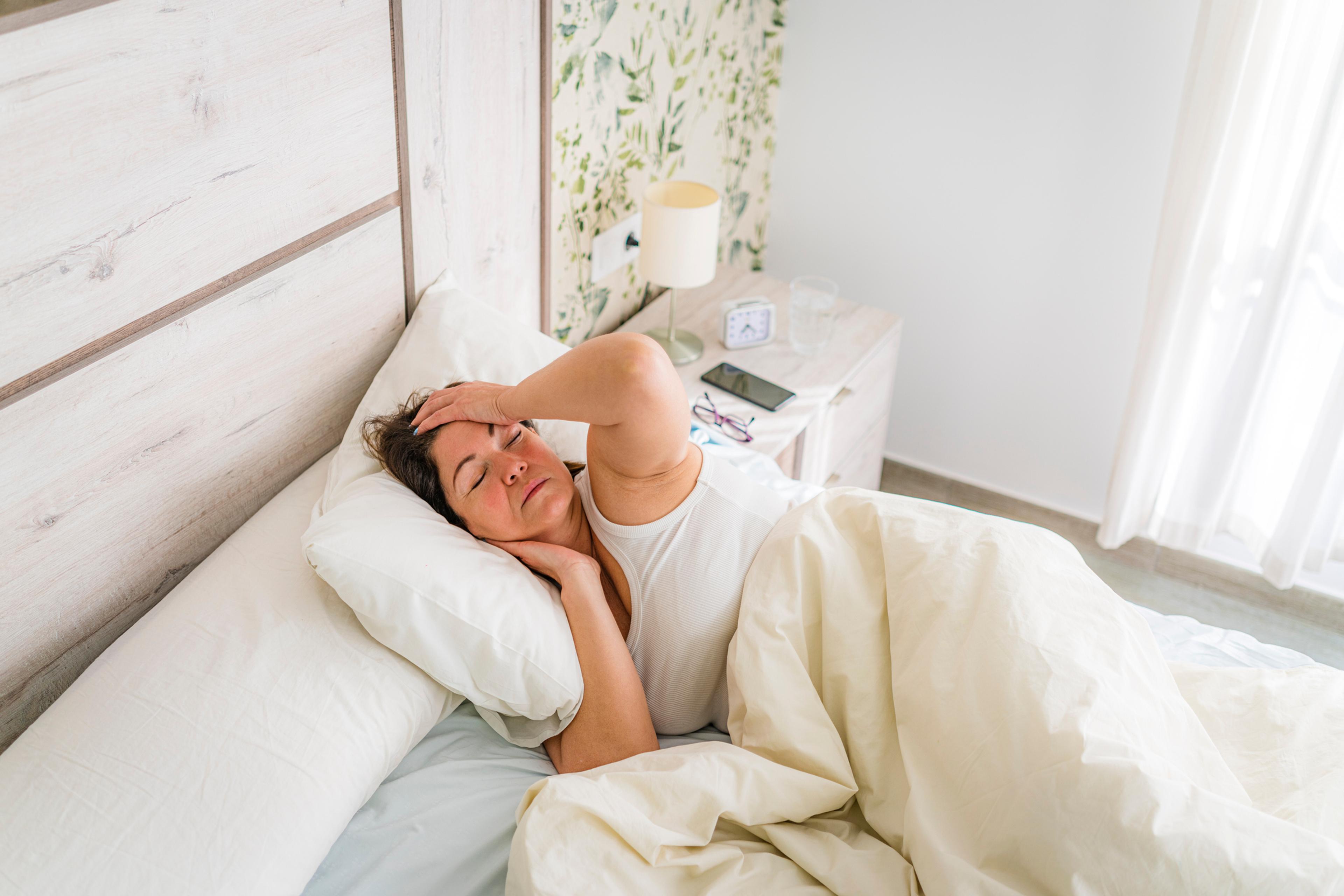What is the Relationship Between Sleep and Weight?
Jake Newby
| 4 min read

We are all aware that diet and activity level factor into our weight, but don’t underestimate sleep’s role in that equation.
While the medical community acknowledges more research needs to be done to determine the extent of the relationship between good sleep and healthy body weight, important research on the topic has uncovered some key points.
Is there a correlation between poor sleep and overeating?
Multiple studies have illustrated the bi-directional relationship that exists between sleep deprivation and overeating, which can lead to weight gain.
Sleep deprivation can create a hormonal imbalance in the body that promotes overeating. According to WebMD, sleep loss can affect the secretion of cortisol, a hormone that regulates appetite. A cortisol spike can cause people who sleep poorly to continue to feel hungry despite adequate food intake. Being overtired also amplifies reactivity in our brain’s reward center, causing it to seek out something that feels good. This chemical process can make us more susceptible to eating junk food.
A 2022 study determined disturbed sleeping patterns among participants led to an increase in energy intake, mainly from snacking on foods rich in fat and carbohydrates. Another study found that sleep deprivation can cause a greater tendency to select high-calorie foods.
Additionally, overeating can cause uncomfortable bodily reactions such as heartburn and acid reflux, both of which can serve as barriers to a good night’s sleep. Eating large meals one to three hours before bedtime can also affect digestion, which affects sleep quality.
The relationship between sleep deprivation and metabolic dysregulation
Sleep does not increase metabolism, but poor sleep can cause metabolic dysregulation. Poor sleep is associated with increased oxidative stress, glucose (blood sugar) intolerance (a precursor to diabetes)and insulin resistance, according to the Sleep Foundation.
Additionally, when cortisol secretion is out of whack, our body knows to conserve energy to fuel our waking hours, which causes the body to store more fat. According to WebMD, researchers discovered that when dieters cut back on sleep over a 14-day period, the amount of weight they lost from fat dropped by 55%, even though their calories stayed equal. They felt hungrier and less satisfied after meals, and their energy was zapped.
Common sleep issues for people who are overweight
Multiple health conditions related to sleep are more commonly found in people who are obese or overweight. These include:
- Asthma: People with a body mass index (BMI) of 30 or more have a much higher risk of having asthma than those with a lower BMI, according to the American Lung Association. Seven percent of adults with a BMI in the normal range have asthma but 11%of adults with a BMI classified as obese have asthma, which is associated with decreased quality of sleep and increased daytime sleepiness, according to studies.
- Gastroesophageal reflux disease (GERD): Obesity is a risk factor for GERD, also known as acid reflux. Many individuals with GERD experience an increase in the severity of symptoms, including heartburn, while sleeping or trying to sleep at night.
- Obstructive sleep apnea (OSA): The most common sleep-related breathing disorder is OSA, which occurs when the throat muscles relax and block the airway. This happens off and on many times during sleep.
Tips for better sleep
If you’re trying to lose weight, getting consistently adequate sleep can help. Research has shown that losing sleep while dieting can reduce the amount of weight lost and encourage overeating. To get better sleep, try:
- Creating an optimal sleep environment that accounts for temperature and darkness. Typically, the ideal sleeping temperature is between 64-68° Fahrenheit.
- Getting regular exercise during the day, which can improve sleep quality, help you fall asleep faster and relieve stress, according to studies.
- Going to bed and waking up at the same time each night and keeping the same schedule on weekends.
- Limiting alcohol intake and avoiding alcohol consumption late at night.
- Abstaining from caffeine at least six hours before bed.
- Limiting screen time and disconnecting from devices up to two hours before bed.
- Avoiding sleep aids; some antidepressants, sleeping pills and other medications can reduce or suppress REM sleep, even those available over the counter. Only take sleep-related medications approved and prescribed by your primary care provider.
Related reading:
Photo credit: Getty Images





